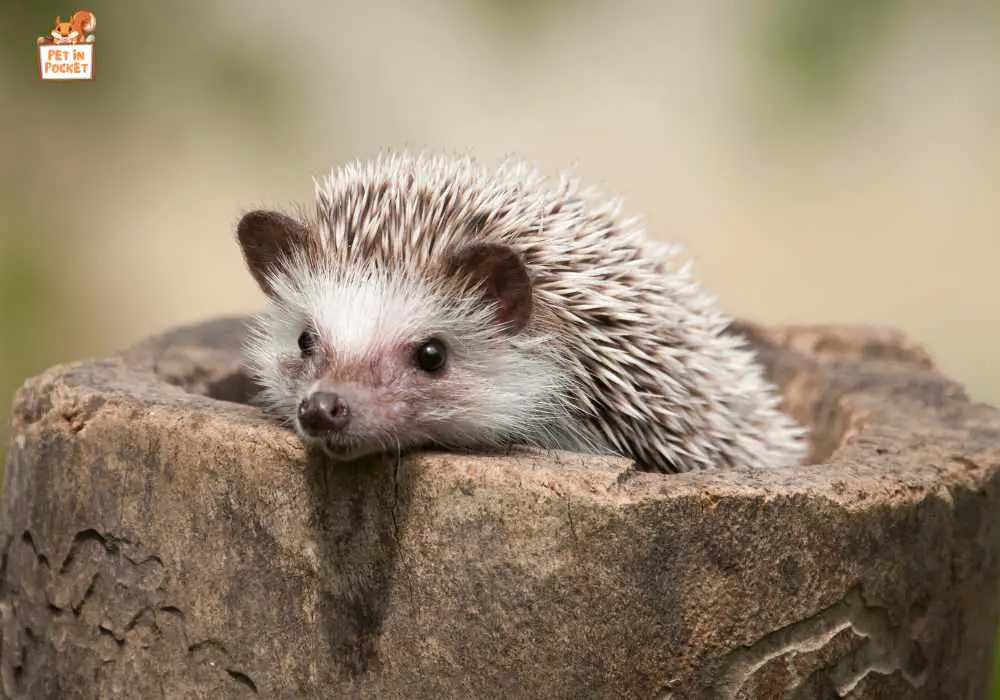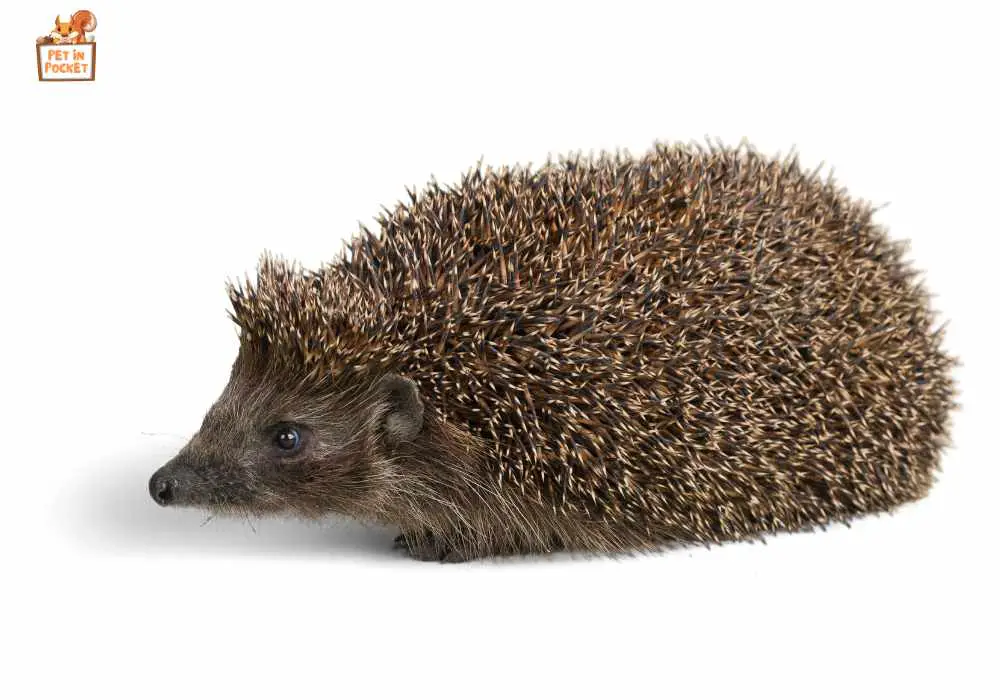How Long Can Hedgehogs Live? This question gives us more information about the interesting world of hedgehogs, which are small, spiky animals that people all over the world find very interesting. The amount of time a hedgehog lives depends on its species and where it lives.
For instance, the woodland hedgehog only lives between 2 and 5 years. African hedgehogs tend to live for three to four years because they are used to living in a slightly different environment. In contrast, the European hedgehog can live anywhere from 3 to 10 years, which may mean that it is better able to adapt to different environments or amounts of human effect.
This overview explores the fascinating world of hedgehogs, providing helpful information for enthusiasts and conscientious pet owners by illuminating the variables affecting their lifespan and life expectancy.
Table of Contents
Understanding the Average Lifespan of Hedgehogs
Hedgehogs in the wild and captivity have very different typical life spans. Hedgehogs usually live 2 to 4 years in the wild, a shorter lifetime. Numerous causes, such as environmental difficulties, human meddling, and predation by larger species, are to blame for this. Predators such as foxes, badgers, and occasionally even people pose a threat to wild hedgehogs. The quality of their environment and the accessibility of food sources also impact their survival.
Hedgehogs can live longer in captivity. They usually live between 3 and 6 years, but in rare cases, they can live up to 8 to 10 years. The oldest hedgehog ever documented made it to 14 years and 10 months.
They live longer in captivity primarily due to their owners’ healthcare provision, a stable habitat free from predators, and regular availability of food and water. Proper feeding, adequate living conditions, and routine veterinarian care are essential factors in extending the life of hedgehog pets.
Several factors affect a hedgehog’s lifespan

Hedgehog lifespans are impacted by many factors, including genetics and living conditions, in both the wild and in captivity. Here’s a more thorough breakdown of these variables:
Genetics:
The lifespan of a hedgehog is greatly affected by its genetic background. Like humans, hedgehogs can inherit health issues from their parents, which may shorten their lives. However, those with a healthy lineage tend to live longer thanks to robust immune systems and a lower risk of certain diseases.
Many prospective hedgehog owners are keen to ensure their pocket pets live as long as possible and often overlook the role of genetics in this. Yet, choosing a hedgehog from a reputable breeder is crucial for good genetic health. Responsible breeders focus on ethical breeding practices to reduce the likelihood of health problems in hedgehogs.
Furthermore, Opting for a well-regarded breeder in the community can make a significant difference. Failing to do so might result in owning a hedgehog with a shorter lifespan and higher susceptibility to illness. While they may still be adorable, supporting unethical breeders perpetuates the cycle of genetic health issues in hedgehogs.
However, it’s important to remember that even a hedgehog from a good breeder isn’t immune to congenital disabilities or other life uncertainties. There’s no guarantee of a long life, but choosing a responsible breeder increases the chances of a healthier and longer-lived pet hedgehog.
Diet and General Health:
Much like people, hedgehogs need a balanced diet to stay healthy and live longer. Feeding them the right foods, rich in essential nutrients, is crucial. This is especially important as hedgehogs can quickly become overweight, which leads to various health issues such as diabetes, joint problems, and heart diseases.
A poor hedgehog diet can result in developmental challenges, a weakened immune system, and a higher risk of nutrition-related diseases. Although there’s no perfect diet formula for hedgehogs, pet owners and breeders try to find the best nutritional balance.
To give your hedgehog the best chance at a long and healthy life, following the diet guidelines tested and recommended by the hedgehog community is wise. Remember, some common sense goes a long way in feeding your prickly friend well!
Habitat:
Their living circumstances greatly impact hedgehogs’ health and longevity. They may not live as long in the wild due to various hazards including predators and inclement weather. It’s beneficial to provide constrained animals with a natural environment.
This entails having enough room for exercise, comfortable sleep, and a stress-free, secure atmosphere. Maintaining hygiene and cleanliness in their living space is also essential for illness prevention.
Healthcare Access:
Since hedgehogs are regarded as unusual pets, having regular access to veterinarian care is crucial. They can live longer, healthier lives with specialized care that helps diagnose and treat health concerns early. This is especially crucial because hedgehogs have specialized health issues.
Disease and Parasites:
Hedgehogs have a shortened lifetime due to their susceptibility to several illnesses and parasite infestations. Fungal infections such as ringworm, several types of cancer, respiratory diseases including pneumonia, and gastrointestinal problems are common health difficulties. Furthermore, significant health hazards are associated with external parasites like ticks and mites.
Stress Levels:
Hedgehogs, much like humans, can have their lifespans significantly affected by stress. A hedgehog owner must monitor their pet’s mood, as a consistently stressed, grumpy, or nervous hedgehog may face future health issues.
As the caretaker, you are responsible for spotting any unusual behavior and promptly addressing the cause. Stress in hedgehogs can stem from various factors, such as persistent noise disrupting their sleep or the time they are handled. Luckily, hedgehogs display clear signs of stress.
Observing these signs and responding appropriately is vital to ensuring your hedgehog’s well-being and happiness.
Exercise:
Hedgehogs are naturally active and need regular exercise to stay healthy. Their physical and emotional well-being depends on this exercise. Exercise helps reduce stress, which is essential for their lifespan.
To ensure your hedgehog stays active, create a stimulating environment. This includes providing a running wheel – hedgehogs love to run and can cover several miles on their wheel each night. Also, provide ample space for play and different toys to keep them engaged.
Another great way to encourage activity is by taking them out of their cage for exploration. New surroundings and smells can excite them, prompting them to move around more. Remember, a happy hedgehog is an active one!
When Is a Hedgehog Considered Old?

The lifespan of hedgehogs is quite fascinating. Typically, a hedgehog lives for about 2 to 3 years, but this doesn’t mean they’re old at this age. In fact, Pat Morris, a notable expert on hedgehogs, suggests that they start to be considered old only after they reach 5 years.
In the UK, where hedgehogs are commonly found, they generally live within this 2-3 year average. However, there have been instances where hedgehogs live much longer, even up to 10 years. The record for the oldest wild hedgehog is an impressive 16 years. Despite these exceptional cases, the odds are sometimes in their favor.
For instance, only 20% of hedgehogs survive their first year, mainly due to natural causes and human-related threats, like road accidents, which claim the lives of around 335,000 hedgehogs annually in the UK.
It’s rare for hedgehogs to live past 7 years, with only about 4 in 1,000 managing to do so. Reaching 10 is even more uncommon, with the odds being around one in 10,000. By the time a hedgehog reaches 10 years, it usually shows significant signs of aging, such as worn-down teeth, making it hard for them to eat.
When Do Hedgehogs Pass Away?

Hedgehogs usually pass away from various natural and human-caused causes in their early years. Hedgehogs typically live between 2 and 3 years. However, several essential variables can affect how long they live, including:
Natural Predation and Survival Challenges:
Predators, illnesses, and severe weather are just a few of the many natural risks that hedgehogs must contend with. These circumstances significantly affect Their survival odds, particularly during their first year.
Human-Related Threats:
Hedgehogs are seriously at risk from human activity. For instance, many hedgehogs pass away in car collisions every year. Pesticides, pollution, and habitat loss all have a detrimental effect on their existence.
Severe Winters:
Hedgehogs hibernate throughout the winter, and it might be difficult for them to survive, particularly for juvenile hedgehogs. They might only make it through the winter if they have stored enough fat or it is too harsh.
Decline Related to Age:
As hedgehogs age, they may experience health concerns such as tooth disorders, which can make eating difficult and ultimately cause their demise. This happens more often in older hedgehogs, especially those that live longer than the average lifespan.
In Captivity vs. Wild:
Because they are kept in a regulated habitat that shields them from predators, gives them a consistent food source, and offers veterinary treatment, hedgehogs in captivity typically live longer than those in the wild. Hedgehogs kept in captivity can survive for 7 years or longer, and in exceptional cases, they can live for 10 or 15.
Conclusion
The lifetime of a hedgehog is 4 to 7 years. However, the quality of care a hedgehog receives significantly impacts how long it lives. Genes are one aspect you cannot control, but there are many other variables you can impact to some extent. A large cage, a calm atmosphere, wholesome food, and routine medical care may significantly prolong your hedgehog’s life.
FAQ
Can hedgehogs live more than 10 years?
It’s rare, but some hedgehogs in captivity have been known to live up to 10 years or slightly more. This generally requires excellent care, a balanced diet, and good genetics.
How do I know if my hedgehog is aging?
Signs of aging in hedgehogs include reduced activity, weight loss, changes in eating habits, and possibly more frequent health issues. Their quills may also start to thin.
Do different species of hedgehogs have different lifespans?
Yes, different species can have slightly different lifespans. For instance, the African Pygmy hedgehog, a common pet species, typically live longer in captivity than European hedgehogs.
What are common health issues in older hedgehogs?
Common health issues in older hedgehogs include dental problems, obesity, cancer, and heart disease. Frequent veterinary care can help detect and manage these conditions.
Can a hedgehog’s diet impact its lifespan?
Absolutely. A well-balanced diet rich in proper nutrients is crucial for a hedgehog’s health and can significantly impact its lifespan.






Leave a Reply